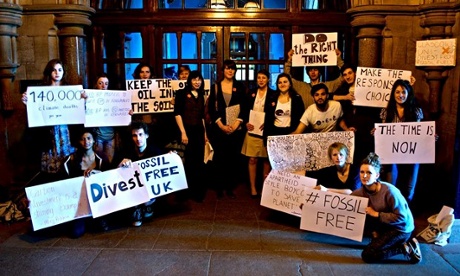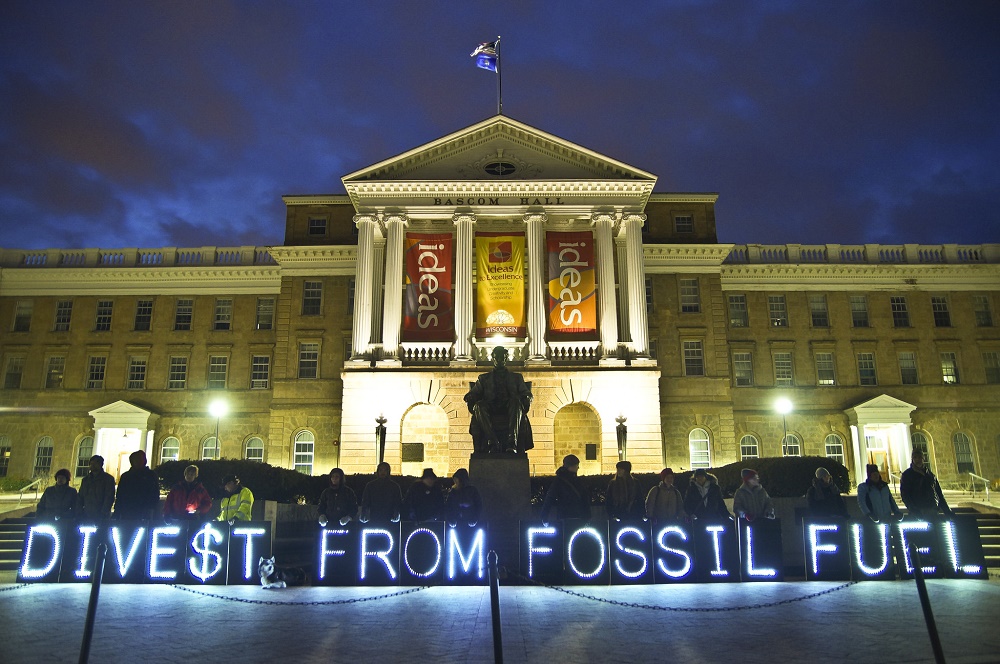GLASGOW University has become the first in Europe to stop investing in fossil fuels, following a student-led campaign.
The Scottish institution voted yesterday to start selling off the shares it holds in companies that produce fossil fuels, divesting £18million from the industry over the next decade.

It has joined a fast-growing climate change movement that has seen similar pledges made by more than 800 investors worldwide including 13 US universities, Australia’s biggest public sector pension fund and the heirs to the Rockefeller oil fortune.
Glasgow University spokesman David Newall said: “The university recognises the devastating impact that climate change may have on our planet, and the need for the world to reduce its dependence on fossil fuels. Over the coming years we will steadily reduce our investment in the fossil fuel extraction industry, while also taking steps to reduce our carbon consumption."
Glasgow is the fourth biggest city in the UK and and was one of the world's leading centres of engineering during the Industrial Revolution.
Its research-intensive university is ranked 55th in the world in the QS World University Rankings.
More than 1,300 students joined the university's Climate Action Society in a year-long campaign for fossil fuel divestment.
Yesterday's commitment is subject to reassurance that the financial impact for the university is acceptable, the detail of which will be monitored by the university’s governing body, the University Court.
Decisions are also imminent from other universities in the UK, including Oxford, Edinburgh and the School of Oriental and African Studies in London.
In the US and Australia, several student campaigns are ongoing including at the University of Wisconsin-Madison.

Student network People and Planet has launched over 50 fossil-free campaigns across the UK involving over 15,000 students in the past year.
Spokesman Andrew Taylor said: “Divestment now has a firm foothold in the UK. Glasgow has helped make the moral case crystal clear and we expect more universities to very soon put their money where their research is.”
However, Scott Wisor, a deputy director of the Centre for the Study of Global Ethics at the UK's University of Birmingham, believes fossil fuel divestment will fail and may distract activists from more effective strategies of combating climate change.
Writing in the academic journal Ethics & International Affairs, he said the shares being sold by investors on moral grounds would simply be snapped up at a discount by less scrupulous investors, or that energy corporations would go private, avoiding the influence of shareholders altogether.
And he questioned the logic of morally disassociating oneself from fossil fuel investment while continuing to benefit from it.
Taking Stanford University as an example, he wrote: "Why is it morally wrong for Stanford and its students to own shares in energy companies but it is morally permissible to use their products? Have Stanford students been banned from driving cars or heating their dorms or flying home for the holidays? It is difficult to see what is morally special about the benefit accrued from shareholder investment."